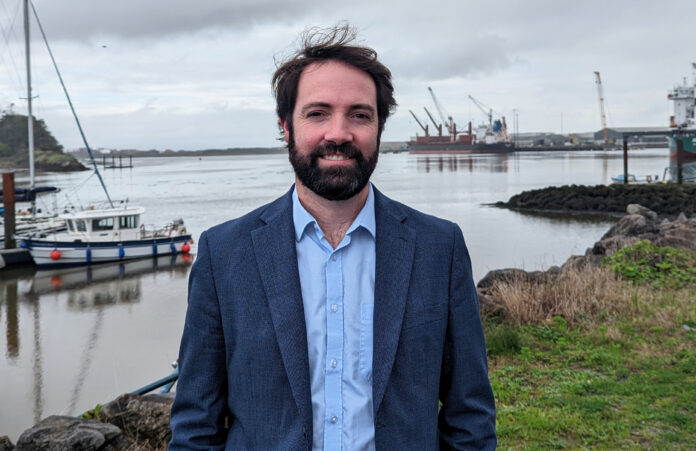
GREEN Party TD and spokesperson for energy, climate action, and environment, Brian Leddin has this week welcomed the publication of the National Hydrogen Strategy.
The strategy, the Limerick Green politician believes, represents a landmark point in the development of a renewable hydrogen sector in Ireland.
“Ireland is powering ahead with the clean energy transformation. This is our future. It has been my vision for Ireland for more than two decades, and it is indeed my vision for my home city and county of Limerick that we are at the heart of it. That is where our future is,” Deputy Leddin told the Limerick Post.
“Green hydrogen will play a huge role in that transition and Limerick is best positioned to be the green energy capital of Europe.”
Deputy Leddin, who is a qualified engineer with a degree in renewable energy systems technology, has been advocating and pushing for increased ambition for wind energy and for green hydrogen as an alternative to fossil fuels in Government policies since being elected in 2020.
The Green Party TD for Limerick City welcomed the focus of the strategy on the scale up and production of renewable green hydrogen, which is also known as renewable hydrogen.
Green hydrogen is obtained by electrolysis of water and the energy needed in the process is supplied entirely from renewable energy sources, so it generates no polluting emissions and is the cleanest and most sustainable hydrogen. Hydrogen can be used for energy generation when the wind isn’t blowing and the sun doesn’t shine.
”One of the limitations of some renewable energy technologies, particularly wind and solar power, is that we might not need it at the specific time it’s generated, and traditionally we had no way of storing it. It’s been a case of use it or lose it, and that has been a disincentive to the widespread rollout of these forms of renewable energy plants. But the times are changing,” the Limerick Green Party TD insists.
“Green hydrogen is an alternative to fossil fuels. My vision is that we electrify as much of our economy as possible through renewable electricity and use hydrogen and derivatives as a means of storing the excess renewable electricity we might generate. We have vast potential off our west coast. There is no technical barrier to it. It is a challenge of economics, planning and, most important, vision. The Government is embracing that vision and we can achieve it.”









